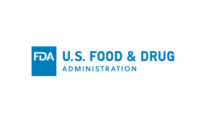Commentary | Regulations & Legislation
Operations during COVID-19

Although much of the United States had been shut down at presstime, to slow the spread of the coronavirus (COVID-19), the country is depending on food manufacturers, distributors and grocery stores to stay in operation. Although this situation is rapidly evolving, we thought it would be useful to share what we have learned so far in terms of how federal regulatory authorities are responding to the pandemic.
FSIS inspection
The U.S. Department of Agriculture’s Food Safety and Inspection Service (FSIS) remains committed to ensuring there are no disruptions in inspection services during the outbreak. The agency has a pandemic response plan in place that it has recently updated in light of COVID-19.
FSIS’ primary concern is ensuring that inspection services can continue even if numerous inspectors become infected with COVID-19 and are required to be quarantined during recovery. The agency can draw upon, part-time intermittent (While Actually Employed) employees and former inspectors that are now serving in other FSIS roles if there are shortages. We can also anticipate that the agency will prioritize slaughter operations, which require an inspector be present for ante-mortem and post-mortem inspection. This could mean that processing plants and warehouses under continuous inspection would potentially have less in-person inspection presence during operating hours, but still enough presence to permit them to operate
If an inspector has symptoms consistent with COVID-19 or is diagnosed with COVID-19, FSIS expects the inspector to quarantine at home and follow instructions from medical officials as well as state and local officials. The agency does not intend to automatically quarantine all other inspectors at an affected plant. Instead, they will assess the level of contact that other officials had with the infected inspector. If other inspectors have more than a low level of contact, they will be directed to self-quarantine pending testing. If inspectors are quarantined, FSIS will provide supplemental inspectors until the quarantined inspectors can return to work.
Health questionnaires, temperature measurement
Some companies are using health screening questionnaires and temperature measurements to determine whether employees and visitors should be excluded from an establishment to prevent the spread of COVID-19. Initially, USDA had instructed inspection and grading personnel to not submit to these screenings on the basis of privacy concerns. However, March 20, USDA issued new guidance that applies to both inspectors and grading personnel.
During the pandemic, company employees may measure the inspector or graders’ temperature via a digital forehead thermometer before permitting entry into an establishment. Company employees may also orally ask the following questions related to COVID-19:
If the USDA employees experiencing symptoms of COVID-19, including shortness of breath, body aches, coughing and fever of over 100.4.
If someone living in the USDA employee’s household or someone the USDA employee is caring for has been diagnosed with COVID-19, or had any recent contact with a confirmed case of COVID-19.
In the last 14 days, if the USDA employee, someone living in the USDA employee’s household, or someone with whom the USDA employee has been in close or frequent contact with, or someone the USDA employee is caring for, returned from, or made a travel connection through a CDC Level 3 or Level 2 country or State Department Level 3 or Level 4 country, for example, China, Korea, Japan, the European Union, Iran.
Per the guidance, establishments may exclude an inspector or grader if the USDA employee answers any of these questions in the affirmative or has fever. USDA inspectors and graders are instructed to not complete written questionnaires. Moreover, USDA states that the companies cannot retain specific answers to the questionnaires or temperature measurements. However, the establishments can retain records of the USDA employees that are permitted or denied entrance based on the screening.
Looking for a reprint of this article?
From high-res PDFs to custom plaques, order your copy today!





